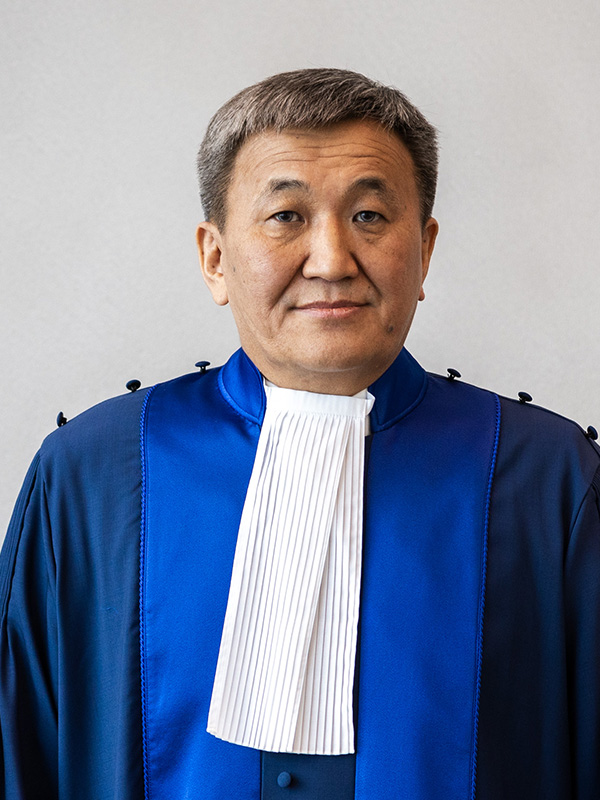The International Bar Association (IBA) has criticised the visit of Russian president Vladimir Putin to Mongolia which starts today (3 September).
Mongolia is a state party to the Rome Statute of the International Criminal Court (ICC).
As such, it has obligations including to arrest and surrender to the court any individuals as requested by the ICC.
The ICC has issued an arrest warrant for President Vladimir Putin of Russia, for the war crimes of unlawful deportation and transfer of children from occupied areas of Ukraine to the Russian Federation.
IBA executive director Dr Mark Ellis said: “ICC States Parties should not be inviting persons subject to an ICC arrest warrant to visit their countries for any reason. Full stop.
“In light of President Vladimir Putin’s planned visit, Mongolia must now uphold its obligations as a State Party to the ICC.
“The ICC judges have found reasonable grounds to believe that President Putin committed serious crimes in the context of Russia’s unlawful invasion of Ukraine.
“Mongolia’s membership in the ICC and its respect for the rule of law demands that it comply with this arrest warrant or let President Putin know that he is not welcome in Mongolia,” he said.
Mongolia must put law over politics, he said.
The ICC, created in 1998 by treaty, relies on its 124 States Parties to cooperate with judicial orders, to fulfil its mandate to prosecute genocide, war crimes, crimes against humanity, and the crime of aggression.
As a permanent international court without a police force, member states are required to assist with arrest and surrender of suspects to the court.
Rome Statute
Mongolia has been a State Party since 2002, when it ratified the Rome Statute.
Kate Orlovsky (director of the IBA ICC and ICL programme) said: “States Parties agree to be the caretakers of the ICC’s mandate and credibility, as part of their commitment to ensuring victims of the most serious crimes see justice and accountability.
“This means that when the court calls on them to arrest and surrender a suspect, the Rome Statute requires them to do so.
“We call on all States Parties to remind Mongolia of the importance of this essential cooperation, and to enforce appropriate consequences in the event of non-cooperation.”
The IBA has produced a guide which addresses obligations under the Rome Statute, including for arrest and surrender.
Mongolian judge at the International Criminal Court
Justice of the Supreme Court of Mongolia Erdenebalsuren Damdin took an Oath of Office at the International Criminal Court (ICC) on March 8, 2024, in The Hague, Netherlands. Mr. Erdenebalsuren obtained 81 votes from 114 States Parties in the International Criminal Court on December 5, 2023.

Justice Erdenebalsuren and five judges from the Republic of Korea, the French Republic, the Socialist Republic of Romania, the Republic of Slovenia, and the Republic of Tunisia took a public oath declaring: “I solemnly undertake that I will perform my duties, and exercise my powers as a judge of the International Criminal Court, honorably, faithfully, impartially, and conscientiously, and that I will respect the confidentiality of investigations and the prosecutions, and the secrecy of deliberations.”
Justice Erdenebalsuren received his legal education at the Russian State university.
Opposition parties in coalition with the government, but why ?
Another Mongolian opposition party the Hun Party announced on Monday that it has agreed to form a coalition government with the ruling Mongolian People’s Party (MPP).
“People may wonder why we, the opposition, are choosing to form a coalition government with the ruling party. We aim to foster a culture of stability and collaborative governance,” Togmid Dorjkhand, chairman of the Hun Party, said in a statement.
“However, we will engage in debates at the parliament level. At the government level, the Hun Party accepts the proposal to form a coalition government, emphasizing the need to move beyond partisan bickering and advance the country’s major projects.”
A Mongolian Opposition politician was beaten to death, his party said on June 16, ahead of parliamentary elections in June.
The victim was a member of the Democratic Party (DP) and a governor of Sant Sum in central Mongolia, his party said in a statement.
The man was killed on June 15, the party said.
In Mongolia, 27.1% of the population lived below the national poverty line in 2022.
In Mongolia, the proportion of employed population below $2.15 purchasing power parity/day in 2023 is 0.2%. For every 1,000 babies born in Mongolia in 2022, 13 die before their 5th birthday.
Rus- sia ranks low (less than 1 per cent) among Mongolia’s top export desti- nations, whereas 80–90 per cent of Mongolian exports go to the Chinese market. This is understandable because both Mongolia and Russia export similar types of mineral products (copper, coal, molybdenum, tin, tung- sten and gold), and Russia doesn’t buy animal products from Mongolia. Due to high customs tariffs and difficulty entering the Russian market, Mongolia’s top export product (cashmere and wool) producers prefer to reach out to markets within the sphere of the Organisation for Economic Co-operation and Development (OECD), especially in Europe.
One enduring dependency on Russia is the high demand for its imports. Russia is the second-largest importing partner (28–30 per cent), after Chi- na, and ranks higher than other import partners (Japan, South Korea and the United States). Mongolia is highly dependent on Russia’s oil products and electricity, especially during the high-demand winter periods. Except for a small amount of petroleum imported from China, all types of oil products (gasoline, diesel and aviation kerosene) from Russia account for more than 90 per cent of Mongolia’s total imports.

































Discussion about this post